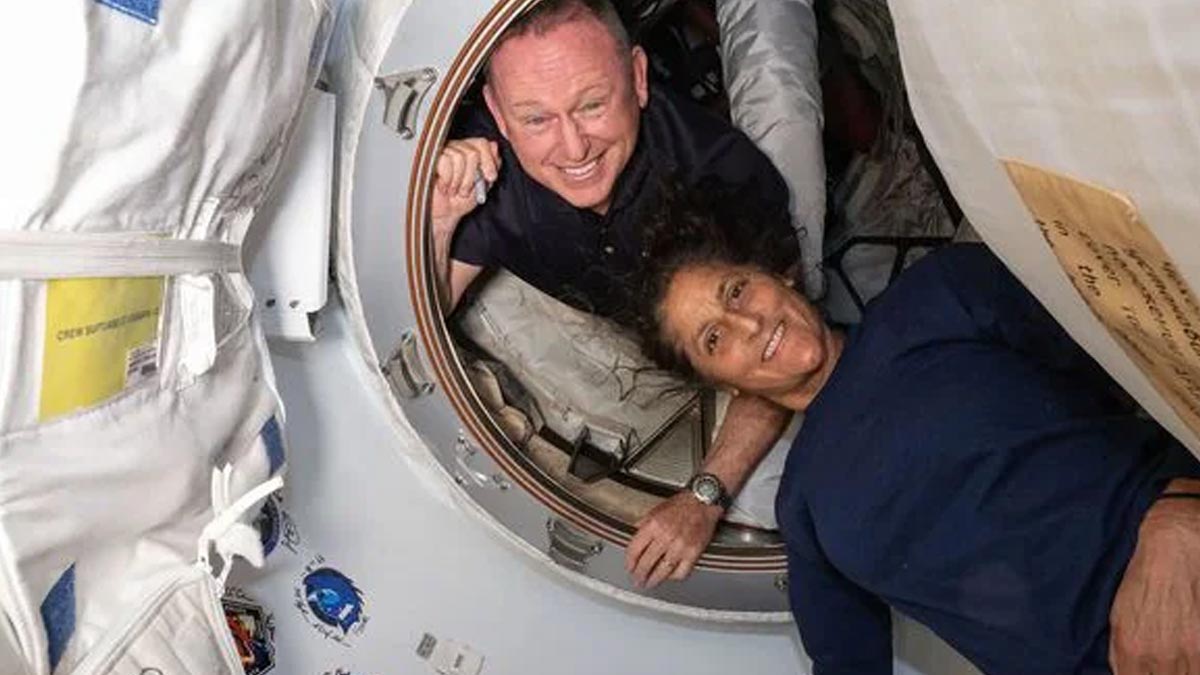
NASA astronaut Sunita Williams is stuck in space for more than 50 days now. She had been on a 10-day mission however, an unexpected delay occurred due to a helium leak in their spacecraft’s service module. As it is not fixed when she and her colleague Butch Wilmore can return back on earth, they are facing the risk of a lot of health issues. Prolonged stays in microgravity environments such as space can significantly impact an astronaut's health. Let's understand the possible health effects that Sunita Williams might be experiencing during her extended space mission.
Table of Content:-
1. Muscle Atrophy and Bone Density Loss
In the weightless environment of space, astronauts experience a lack of gravitational force that normally keeps their muscles and bones engaged. This can lead to muscle atrophy and a significant decrease in bone density. According to NASA, without Earth’s gravity affecting the human body, weight-bearing bones lose on average 1% to 1.5% of mineral density per month during spaceflight. NASA also explains that without the proper diet and exercise routine, astronauts also lose muscle mass in microgravity faster than they would on Earth.
2. Cardiovascular Changes
NASA states, “In space your heart does not have to work against gravity to pump blood to your brain and blood accumulates in the upper body because gravity is not there to pull it toward your feet.” This can also affect the cardiovascular system of an astronaut.
3. Fluid Shifts
As per NASA, the fluids in the body shift upward to the head in microgravity, which may put pressure on the eyes and cause vision problems. This can lead to facial puffiness, nasal congestion, and increased intracranial pressure, which can affect vision.

4. Radiation Exposure
Space exposes astronauts to higher levels of cosmic radiation compared to Earth. Prolonged exposure can increase the risk of cancer, cataracts, and other health issues. Spacecraft are designed with shielding to protect astronauts, and missions are carefully planned to minimize exposure, but it remains a significant concern for long-term space travel.
Also read: Space Travel Impact On Human Body: 7 Ways The Health Of An Astronaut Gets Affected
5. Psychological Impact
Being isolated and confined in a spacecraft for an extended period can take a toll on an astronaut's mental health. Feelings of loneliness, anxiety, and depression can arise. NASA provides psychological support to astronauts, including regular communication with family and friends, access to mental health professionals, and engaging activities to keep their minds occupied.
6. Immune System Suppression
Spaceflight has been found to suppress the immune system, making astronauts more susceptible to infections. The stress of space travel, combined with altered sleep patterns and exposure to a unique environment, can affect immune response. Ensuring a nutritious diet, regular exercise, and proper rest are essential to maintain immune function.
Also watch this video
How we keep this article up to date:
We work with experts and keep a close eye on the latest in health and wellness. Whenever there is a new research or helpful information, we update our articles with accurate and useful advice.
Current Version
